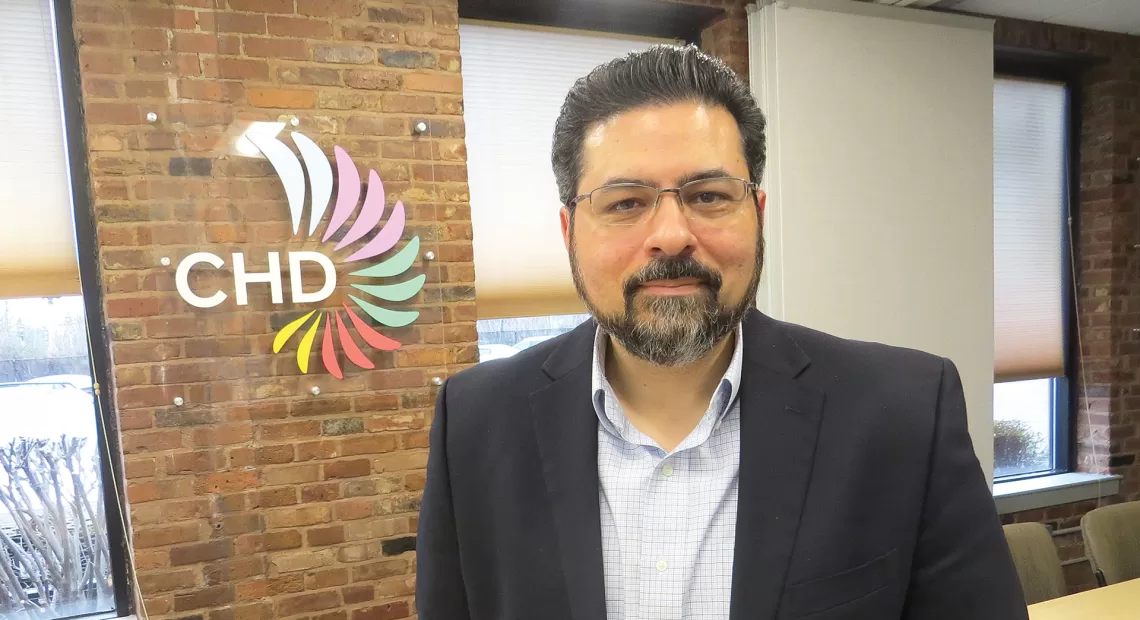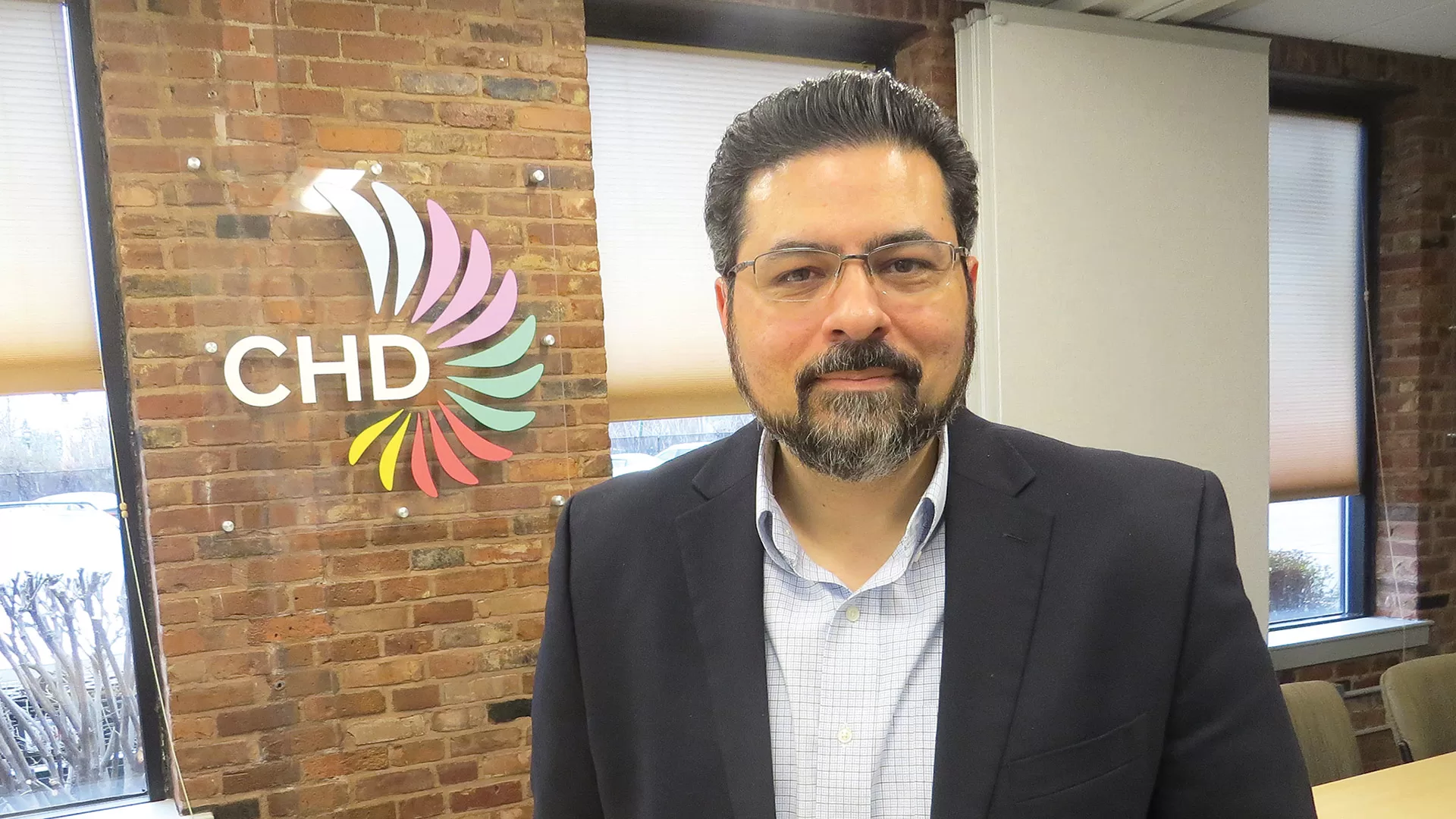
Will Dávila Keeps His Focus on Making an Impact
Where Are They Now?

Will Dávila says he’s always sought out career opportunities where he can make an impact.
Will Dávila says he’s learned from experience — and some not-so-pleasant experiences, to be more precise — that, when a job isn’t working for you, you don’t stay in it.
And in his case, ‘not working’ translates directly to “you don’t feel fulfilled, you don’t feel like you’re having an impact or making a difference, and it just doesn’t look like that’s going to be happening.”
Such was the case with his short tenure serving as campus executive director of the UMass Center at Springfield a decade or so ago. He envisioned the role as one where he could “bring education to this community and really promote higher education as an opportunity for kids like me, who grew up in Springfield, in the projects, and had limited opportunities.”
The reality was different as the facility struggled to ramp up enrollment.
“Instead, I spent almost all my time giving tours,” he told BusinessWest, noting that the facility, created on the mezzanine level at Tower Square, had just opened, and many business and civic leaders, as well as the press, wanted to see it. “I said, ‘I’m a social worker. I’ve been in human services my whole career. This is not a good use of my time.’”
Coincidentally, one of those who eventually came in for a tour was Jim Goodwin, president and CEO of the Center for Human Development (CHD), and during that visit, the two started talking, a discussion that eventually led to Dávila becoming vice president of Clinical Services for the agency.
He would spend a few years in that role before becoming a nonprofit consultant and executive advisor, then leading two nonprofits, and then returning to CHD last October to assume the role of vice president of Diversion, Shelter & Housing, a role where he believes he’s making a deep impact.
Overall, it’s a been a winding journey with a few of those jobs that weren’t working, but, overall, it’s been a rewarding career in the broad realm of health and human services, one that serves as an appropriate and poignant starting point for a new series we’re launching at BusinessWest called, appropriately enough, ‘Where Are They Now?’
“Part of the unfortunate reality is that they move through a continuum of services. So I consider myself privileged to have worked in many parts of that continuum.”
As the magazine prepares to celebrate its 40th anniversary of serving the region, and as some of its recognition programs — which have brought hundreds of individuals and groups into the spotlight — approach two decades of existence, there is a need to update many of the stories we have told over those years.
We begin with Dávila, who started his career with nonprofits focused on health and human services more than 20 years ago, when he became Metro Boston regional manager for Devereux Advanced Behavioral Health. Then came his first stint at the agency now known as Helix Human Services, then known as the Children’s Study Home.
But it was a few years later, when he was serving as director of Outpatient Services at the Gándara Center in Springfield, when he was first recognized by BusinessWest, as a member of the 40 Under Forty class of 2013.
Soon thereafter came that short stint at the UMass Center at Springfield, his first stint at CHD, work as a consultant, a return to what is now Helix as executive director and CEO (when that agency was being rebranded and also being recognized by BusinessWest as a Difference Maker), and then a very short stint — a cautionary tale, as he calls it — as CEO of the Villa of Hope in Greece, N.Y., another of those jobs that just wasn’t working, this time for different reasons.
“The board was not really forthcoming about the real condition of the organization,” Dávila said, adding that what he found did not match what he was told in interviews, regarding everything from the budget — the $20 million agency was trending toward a $4 million deficit for the fiscal year soon to come to a close — to the workforce, to the vacancies within its programs.
He is now back at the agency he calls home (this is actually his third stint there), in a role where he oversees a staff of roughly 240, an annual budget of $34 million, and a division with dozens of family and individual units, several emergency shelter hotels, and other housing options.
This latest assignment enables him to add another line, another area of focus — in this case housing — to his résumé and, far more importantly, make an impact and a difference in people’s lives.
“It’s an amazing department and an amazing service,” Dávila said. “It’s something different, but, surprisingly, it’s not all that different. A lot of the folks we’re dealing with are the same people we’re assisting in residential, in children’s services, foster-care and outpatient services, and substance-abuse services.
“Part of the unfortunate reality is that they move through a continuum of services,” he went on. “So I consider myself privileged to have worked in many parts of that continuum and actually lead some of them, so this is a nice addition to my portfolio, if you will.”
That’s where Dávila is now — and where he plans to be for some time, because this job definitely does work for him.
—George O’Brien




